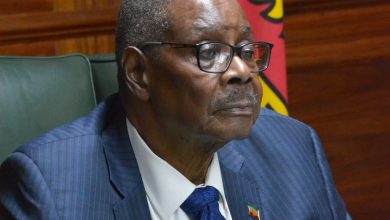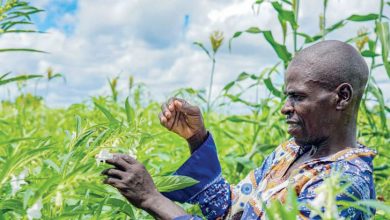Promoting theatre and collaborations
From November 21 to 23, the University of Malawi (Unima) will hold the third edition of the Unima Theatre Festival. The festival, which mainly celebrates theatre, promises to bring the talent, the fun and the opportunity to network and learn from each other. Our Arts Editor EDITH GONDWE caught up with Dr Zindaba Chisiza, Associate Professor in the Department of Drama and Theatre Studies at Unima, to look back at the journey of the festival this far. Excerpts:

landscape in Malawi. | Courtesy of Zindaba Chisiza
Q: This is the third edition of the Unima Theatre Festival. When you look back at the journey, what are some of the key achievements?
A: The fact that we are even able to have a third edition of the festival is a testament to the fact that this festival has a place in the calendar of cultural activities in Malawi. There is a space for it in terms of supporting the growth and development of theatre broadly, specifically in supporting young creatives, who are in the university, in secondary schools and those working in the theatre industry. In terms of our growth, we started off modestly, although we had significant funding given to us by Tilitonse Foundation. In our second year, we were able to get support from Standard Bank plc who came in as a major partner for us to implement the second edition of the theatre festival. We were also fortunate that Tilitonse Foundation also supported that second iteration. Other partners were Malawi Research and Education Network (Maren), INQ Digital and Old Mutual. Moreover, Zodiak Broadcasting Station gave us free coverage both online and TV, which helped to grow public interest. In the second edition, the number of partners increased, which was an indication that people were beginning to see the value of the Unima Theatre Festival. When I look back, these are major milestones in terms of growing the festival. Another aspect that is important to mention is the format. In 2023, we primarily focused on showcasing theatre, but last year we introduced workshops. These are open to the public, but mostly aim to engage students. The workshops are facilitated by industry experts and seek to pass on skills and knowledge to young creatives, including industry players. Another indicator in so far as our growth is concerned is the number of artists we were able to bring to the festival and provide logistical support to. In 2023, we had a sizeable number, in 2024 we increased and this year we hope the number can increase. Last year, we introduced student-led activities such as drama, fine art exhibitions and musical performances that start on Friday afternoon, which is another major development. These serves as a pre-festival event. This gives our students a platform to be fully involved in the festival.
Q: Now take me through the process for one to participate. What are the conditions?
A: So, in the first edition, the applications were quite manual. Last year we introduced electronic platform form for our applications. The festival is open to professional, amateur, university and secondary -based groups. All are free to apply. Since this is the second time using electronic applications, we do not anticipate artists facing challenges as they did last year. In terms of what we are looking for, we are quite open in terms of who is allowed to apply. But it is primarily a theatre festival so our biases are obviously theatre such as professional, community-based, amateur, university and secondary school theatre groups including stand-up comedy. Although we also include dance such as traditional and contemporary groups being part of the festival, apart from music. But in as far as what we are looking for, it is quite open. That being said, we have a limit in terms of number of group members that can come and perform because we generally cover all expenses for our participating groups. So, due to budget constraints as we can’t accomodate 30 member production. As a festival, we don’t have restrictions on themes,. Generally our criterion is quite open ad accommodative.
Q: Now talk to me about the other genres of entertainment at the festival. These include music, poetry traditional dances and what have you. How many of these additional groups are coming?
A: It is difficult for me to say now how many we are going to have. We have to go through the applications to look at who have applied. There are some applicants who are in professional groups and highly ranked and we try and see if we can accommodate them, creating an opportunity for them to engage with young people. At this moment, I cannot really say how many will participate. We will soon communicate the number of groups that are participating.
Q: Finally, what makes Unima Theatre Festival unique?
A: The University of Malawi is the leading arts training institution in Malawi. We have an established history of theatre in Malawi. If you talk of the history of theatre you cannot omit the University of Malawi. We are the mother and father of the theatre landscape in Malawi. For us it is that heritage that make us unique. We also have a readymade audience at the university that are making, creating and consuming theatre. Our vision is that once these students graduate, they can support this industry. So, our uniqueness is not just in terms of where we position ourselves, but also in terms of the value chain that we have and are hoping to contribute to.




